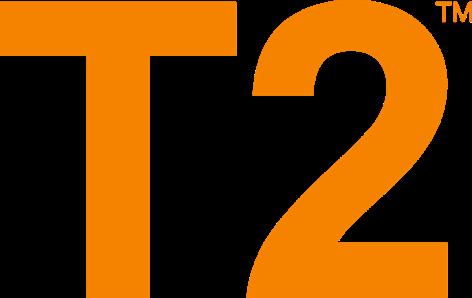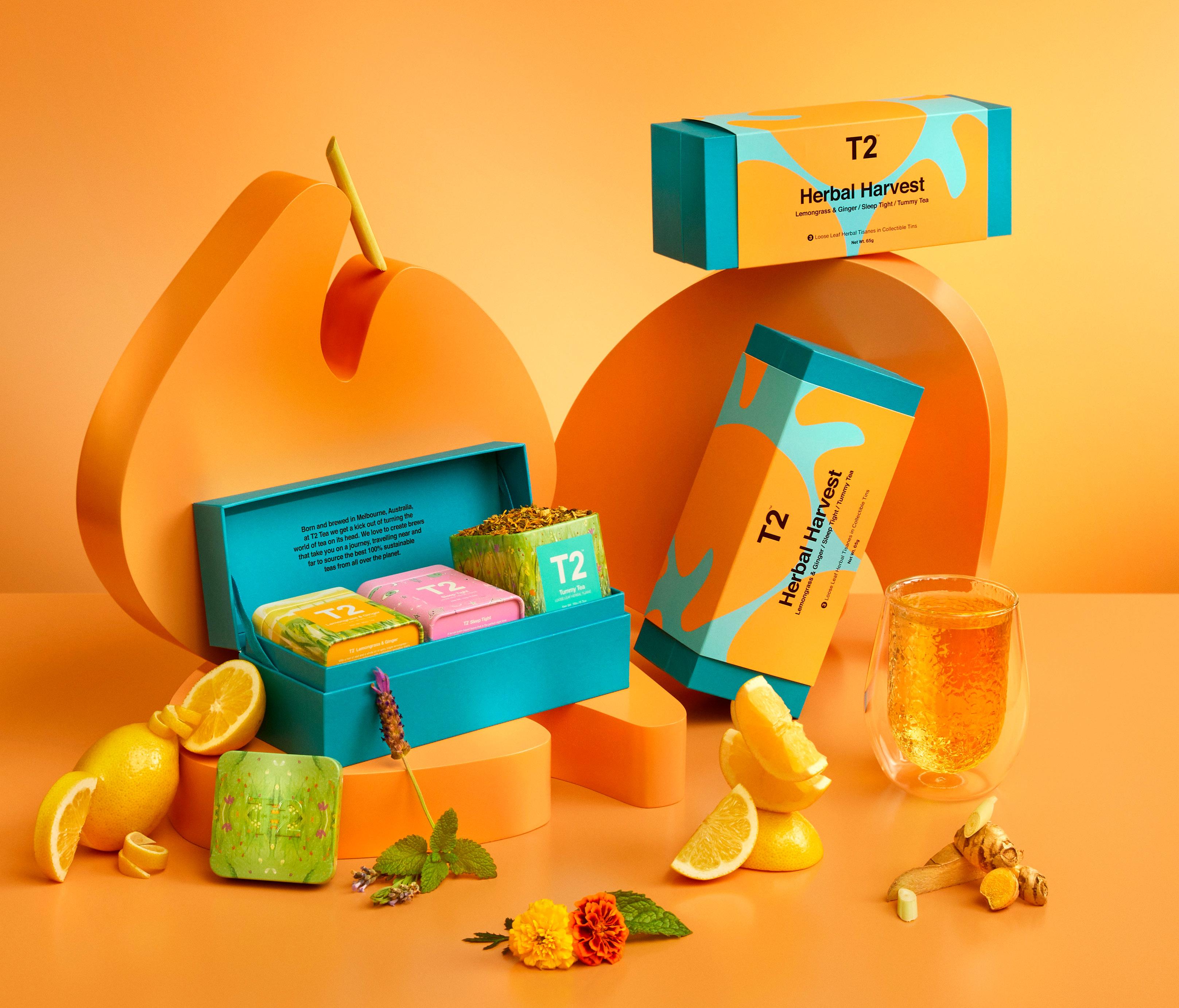

T2 on Supplying Quality Tea, Whatever the Challenges
IN ASSOCIATION WITH:
IN ASSOCIATION WITH:


Gabriel Eytan, Global Head of Supply Chain at T2 on the skills needed to manage a global tea supply chain in a volatile world
Founded in 1996, T2 Tea began life in Melbourne, Australia. Since then, the company says it has “grown a community of tea lovers through reimagining the humble tea leaf, the ways we brew it, serve it and share it”.
Today, T2 has grown to include an online store, a large distribution centre and retail stores across Australia, New Zealand and Singapore.
Nearby, its support office creates the company’s unique tea blends, and crossfunctional teams collaborate on strategy, operations, technology, brand, e-commerce and wholesale.
Among those personnel is Gabriel Eytan, Global Head of Supply Chain at T2 Tea. He has been with the company for 18 months.
“My job is to get all of our product sourced, and then distribute it to whoever the customer might be,” Eytan explains.
This is no mean feat. T2 sources from 30 countries, and distributes to its operations in Australia, New Zealand and Singapore, but also further abroad through online channels. T2 sources tea mainly from Europe and North Africa, which is also where most of the tea is packaged. However, it also sources from traditional tea-producing countries such as China, India and Sri Lanka.



GABRIEL EYTAN
TITLE: HEAD OF SUPPLY CHAIN
Gabriel Eytan is a Supply Chain professional with 15 years of experience in both operations and Supply Chain improvement. Gabriel’s experience spans across a variety of industries as well as geography having started his career in Europe and is highly regarded by his peers and leaders for his successes. Gabriel boasts a keen interest in sustainable supply chain and impact reduction and is a critical part of driving that change at T2.


“Being a B Corp means we’re part of a global movement intent on redefining success in business by challenging ourselves to be the best in the world”
GABRIEL EYTAN HEAD OF SUPPLY CHAIN, T2 TEA
T2 also has numerous routes-tocustomers. It sells through bricks-andmortar stores (with which Australians will be very familiar), but also has an online presence, as well as a wholesale trade that is split between out-of-home channels, grocery, and resellers of all descriptions.
Like many supply chain chiefs, Eytan has an engineering background.
“Engineering is a good way into supply chain, because both disciplines are about problem solving,” he says. “I’m yet to see a supply chain that does not have problems.”
The long lead-times of tea ‘make life difficult’ Eytan says T2’s biggest supply chain headache is lead times.
“Tea is an agricultural product so it’s contingent on climate,” he says. “Last year we had the heatwave in China, which impacted some of the products we source from there that we use in our blends.”
He says that geopolitical unrest is another cause of disruption.
“You have wars in different parts of the world, such as Ukraine and Somalia, and now we have the shipping crisis in the Red Sea,” he adds that such factors “make for very long lead times and this affects our reactivity to our markets”.
Such global volatility combined withlong lead times means inventory management is of critical operational importance.
“Managing inventory is difficult, I won’t lie to you,” Eytan says. “Because of the extraordinarily long lead times, we’ve got some very high levels of inventories.”
Expanding on this, he points out that “in FMCG you might be sitting on weeks of stock, whereas we can take months of stock”. This, he says, “is an entirely different scale of inventory holding”.
Eytan adds: “This is why we work closely with our partners. Before we even talk about the shipping element, or any shipping issues, we will maybe look to take on a brand-new customer who is appreciably bigger so able to take a lot more stock.
“There’s an enormous amount of work that goes into working with our suppliers, because this helps us be reactive, but in an intelligent way.”
And because its supply chain is truly global, T2 has great exposure to shipping problems.
“Most of our suppliers are half-way around the world, so we need to understand how they’re getting impacted by shipping issues that will delay our production,” Eytan says.


“Although tea does not need coldchain tech it does require specialty packaging and temperature and moisture control”
GABRIEL EYTAN HEAD OF SUPPLY CHAIN, T2 TEA
He adds: “We need to know that, when we order something, we can react quickly and put it on a boat and the time that this should take is the time it actually takes.”
He concedes that “there is not a lot that we can do about this” and adds best practice is “to have reliable demand and the right level of inventory to meet our demand and supply profile, and this is something that is permanently reviewed”.
Supply chain flexibility ‘crucial’
Given all these challenges, flexibility in supply chain design is extremely important to T2 Tea. This is why the company is designing a new main warehouse in

Australia, with a view to servicing all its market segments as efficiently as possible.
“We do B2B as well as B2C, which are entirely different,” says Eytan. “So it’s really about having that distribution capability to offer us flexibility – whether it’s in the warehousing or the distribution element.”
Underpinning most of the improvement to its supply chain is technology, without which Eytan says the company “could not keep on top of things”.
He adds: “With all the different countries that we source from, all the countries we distribute in, as well as the panel of products we have, it would be almost impossible to keep on top of it all without technology.”
It is technology, he says, that “helps us realise what is and is not needed, and when”.
He adds: “Having an algorithm tell you what you need to focus on makes life a lot easier, or else I would need an entire army to look after things.”
When Eytan joined T2 18 months ago he said the company had implemented the inventory management solution Netstock.
“It was implemented a long time ago but no one was using it properly,” he says. “I was familiar with Netstock from my previous life, so we cleaned it up and made sure that it was delivering the results it was supposed to deliver.”



“The biggest single problem with tea is the long lead times –it’s an agricultural product”
GABRIEL EYTAN HEAD OF SUPPLY CHAIN, T2 TEA
Since then, T2 “has massively improved our service”, says Eytan. “We haven’t really meaningfully increased our inventory holding but we’ve improved our service levels considerably, as well as reducing the amount of wastage.”
Tea is perishable, adding supply complexity
Mention of wastage references another problem with tea: its perishability.
“The other complexity with tea is it’s a perishable product,” points out Eytan. “You’ve got only so many months before you need to sell it, meaning that once you have it you need to make sure it goes quickly.”
The alternative, he explains, is that you need to “make sure you’re not sitting on too much because apart from the cost of this there will be a high level of write-off at the end”.
Although tea does not need cold-chain technology Eytan says it requires “specialty packaging and fine temperature and moisture control”.
“My reward comes not from how great the products look but rather about having them ready for people to buy”GABRIEL EYTAN HEAD OF SUPPLY CHAIN, T2 TEA
“We use sustainable packaging,” he adds. “The tea bags are compostable, as is the poly wrap around it, and the cardboard we use is recyclable. Although not all of this is claimed on the product, there is a high degree of sustainability in our product.”
Other areas in which T2 tea is looking to become more sustainable is in its shipping,
“We’re working with our overseas partners on introducing innovations around maximising container utilisation,” says Eytan.
He adds: “Most of our bricks-and-mortar stores have solar panels, and other initiatives include cardboard recycling within our facilities. Rather than sending off cardboard to a recycling company, we shred it and use it as fill-pack.
Most crucially, though, T2 seeks to source its tea as sustainably as possible.
Eytan says that this is “a non-negotiable”, adding: “We have suppliers say that their product is way cheaper, and the first question is always ‘How sustainable is it?’”




T2’s B Corp status is driving sustainability efforts
Driving T2 Tea’s sustainability efforts is its B Corp Certification. A landmark moment for the company was joining the global community of around 3,000 companies who are certified B Corp organisations.
B Corp certification is a sign a business is meeting high standards of verified performance, accountability, and transparency on issues ranging from employee benefits and charitable giving to sustainable supply chain practices.
To achieve this status a company must demonstrate high social and environmental performance, and it must also make a legal commitment by changing its corporate governance structure to make it accountable not just to shareholders but to all stakeholders.
“Being a B Corp means we’re now part of a global movement intent on redefining success in business by challenging companies to be the best in the world and do the best for the world,” says Eytan
He adds: “We seek to improve our performance levels year on year. And it’s not only our people who are very proud of this – it also resonates with our customers.”
In short, says Eytan, “we’re not just trying to offer a better or cheaper product but something that is better for the planet”


